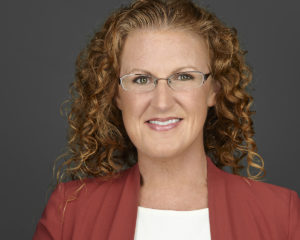*3 minute read*
It is sometimes said that marketing is the application of psychology, anthropology, and sociology. But through them runs a singular thread — human connection.
“If COVID taught us anything, it was the value and importance of relationships,” said Jenna Armato, Executive Director of AMA Philadelphia and a John Maxwell Team-certified growth and success coach. “With regard to leadership, the pandemic put everyone in the same spot: everyone was working from home, navigating the family environment, and looking for toilet paper. It was more important than ever for leaders to know what challenges employees face on a daily basis, and to know what they need to succeed and grow.”
Armato explored these crucial themes in the recent online AMA Philadelphia event “Creating Connections That Count” through the lens of a behavioral analysis technique known as DISC Theory and in a recent interview with me.
What is DISC?
Originating from the work of Carl Jung and researched and developed by Dr. William Moulton Marston at Harvard University, DISC behavioral assessment provides a method of identifying predictable actions and personality traits within human behavior. What distinguishes the DISC assessment types from other personality and behavioral analysis models is its simplicity and emphasis on behavior. Predictable personality traits are narrowed down into four behavioral styles: Dominance (D), Influence (I), Steadiness (S), and Conscientiousness (C). Since these behaviors are displayed externally, it’s easier to use this theory to observe and interpret a person’s preferred (and most comfortable) way of doing things.
Using DISC for a Career Shift

Before she became a DISC Certified Behavioral Analysis Trainer, Amato took her first DISC behavioral assessment in order to capitalize on behavioral and communication insights about herself and the people around her.
“At the time, I was launching my own business and shifting away from the corporate environment,” she recalled. ”As I was creating my home office environment, I was trying to fit myself into a rigid corporate structure routine, but my style is mainly fluid and spontaneous. Naturally, I had some frustrations. It opened my eyes to learn more about myself and my DISC style! I learned how to maximize my strengths, and understand how to leverage the strengths of others in areas I’m not naturally wired in.”
Using DISC to Connect with Audiences
Organizations that advocate the use of DISC in daily communications often report less misunderstanding, shorter meetings, less conflict, effective teams, more cooperation, and improved productivity and performance. However, the DISC Model can also be implemented externally. Savvy marketers know that simply targeting a specific demographic is no longer enough to create a successful business; only authentic connection with an audience will drive a sustained passion for your product or service. DISC assessment types can be used to create more accurate marketing personas that reflect the living, breathing human beings who most likely would relate to your brand.
“It’s about understanding the people in your target market – understanding their behavioral patterns, communication, and decision making preferences, so you can communicate with them in a way that’s going to create the most effective outcome and deepen the relationship,” said Armato. ”There are an increased number of people making purchasing decisions based on an alignment with their core values. To help grow an organization and make it sustainable, it makes sense to focus on the assessment types that are likely to purchase from you.”
Using DISC to Grow
Regardless of what tools you use, however, Armato advocates exploring and increasing your awareness of communication styles and the variety of ways people connect and accomplish things. Whether it’s as individuals, within the context of team dynamics, or in our personal relationships, she sees it as crucial to fulfillment and success.
“Sometimes we get stuck doing the same routine, the same job and not growing,” she said. “Unless you’re taking an intentional step toward growth, it is not going to happen. We can’t rely on anyone else to do this for us.“
To find out more information on DISC assessment types or about Jenna Armato, go to www.jennaarmato.com.
